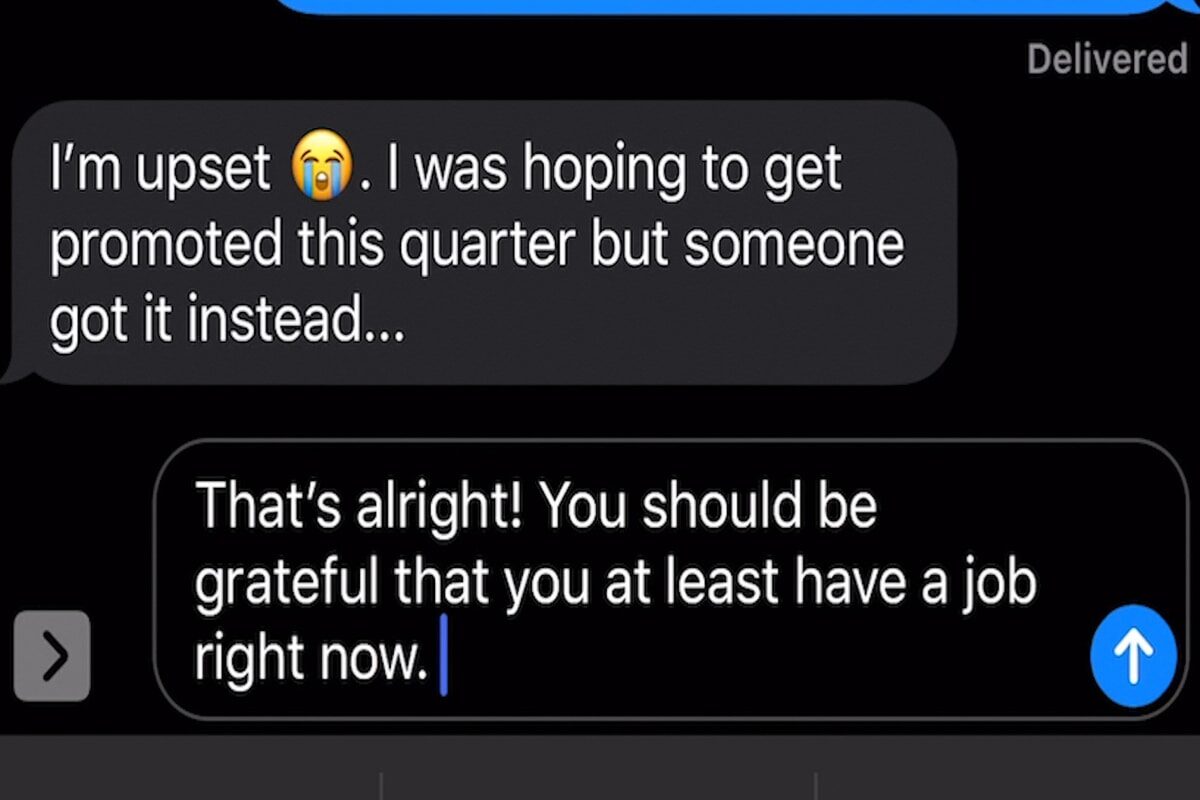
Is toxic positivity a thing? Here’s why “being positive” doesn’t always work
How do you cheer someone up in a time of widespread social & economic unrest and uncertainty – all during a global pandemic. When our anxiety is through the roof, our friends sending us cat memes don’t always cut it for us. In fact, it can seem kinda rude. It turns out there’s a word for this, and it is called “toxic positivity”.
Have you ever had a day where you just wanted someone to meet you where you were at emotionally? As well-meaning as our loved ones may be, positivity for positivity’s sake sometimes causes more problems than it solves. Let’s figure out how to change that.

Not-so-rosy colored glasses
Stephanie Preston, Ph.D., professor of psychology at the University of Michigan defines toxic positivity as people deploying “positive emotions or optimism in a way that causes people to feel oppressed or disregarded. It ranges from people actively trying to maintain their own spirits or sticking their heads in the sand, to forcefully preventing others from voicing uncomfortable concerns.”
After being laid off from her job of ten years over the summer, thirty-four year old Lynsey attested she also found herself on the receiving end of toxic positivity. “I was terrified about the future, but my friends told me I should be grateful for my health, or be thankful that no one I loved had caught the virus,” she explained in an interview with Elle Magazine.
“I got depressed and withdrew from people because I wasn’t able to talk to them without being sent ‘good vibes,’” Lynsey continued. “I’m single, with no family support, and as much as I want my friends to be rooting for me, positive thoughts can’t pay my bills.”

Although Catherine Renton of Elle Magazine exclaimed that while she understood that nobody really knows what to say in times like this, she still felt like her reality was being sugar coated.
“The worse things in my life became, the more inane platitudes were sent my way. Friends were well-intentioned, but trying to suppress my pain with hyper-happy statements wasn’t helpful; it was toxic. Instead of real support, I was bombarded with messages telling me to: ‘Think positive!’”

Words escape us for a reason
Natalie Dattilo, Ph.D. is the Director of Psychology at Brigham and Women’s Hospital in Boston. She says toxic positivity can be invalidating because although we’re navigating the pandemic at the same time, not all of us are going through it the same way.
“During times of adversity, we rely on whatever we can to cope. But ‘looking on the bright side’ in the face of tragedy or dire situations like illness, food insecurity, unemployment, or racial injustice is a privilege not all of us have,” Dattilo explained. “Spreading messages of positivity denies their genuine sense of despair and hopelessness, and may only serve to alienate and isolate those who are struggling.”
Clinical psychologist Jaime Zuckerman stated toxic positivity can also come in the form of being pressured to stay productive during the pandemic. “It’s important not to overload yourself with brand new tasks that you think will make you feel more positive,” she says. “During times of stress, our brains do not always have the mental ability to tackle something with a heavy learning curve. In fact, it can set us up for failure.”

What can be done?
Jamie Zuckerman suggested sticking with what you know, instead of potentially overwhelming yourself with trying to learn something entirely new. “If you love doing yoga, try a different type of yoga. If you love reading, pick a different genre,” she advised. “Doing things to make you feel better protects you from setting, and ultimately not meeting, unrealistic expectations.”
Everyone knows the most optimistic sayings & parables come from a good place, yet there is a time & place for everything. More often than not, it can be better to actually say how words escape us, rather than trying to find the right ones to say. Zuckerman agrees. “Feel your feelings. Sit with them. Do not avoid them. Avoiding discomfort only prolongs its existence.”
A 2018 study on the psychological health benefits of accepting negative emotions revealed longitudinal evidence that people who avoid confronting their true emotions end up feeling worse over time. In fact, accepting & confronting negative emotions as soon as we are aware of them makes them easier to combat the next time we have them.

Facing negativity head-on
Ariel, 37, recalled a conversation with her late father where they just laid bare all of their negativity. “We just complained to each other for an hour or two,” she says. “At the end of it, just before hanging up, he said, ‘You know, I feel a lot better now!’ We weren’t trying to force any positivity into the conversation. But just by listening to each other and understanding, we actually succeeded in feeling more positive.”
People are complex and have an entire range of even more complex emotions. The sooner we validate all of them, in all of their forms, the better. The sooner we recontextualize the difficult emotions as nothing to be afraid of, the sooner we will be able to collectively rise above the despair of 2020.
—
How have you confronted the negativity in your life this year? Let us know in the comments!







